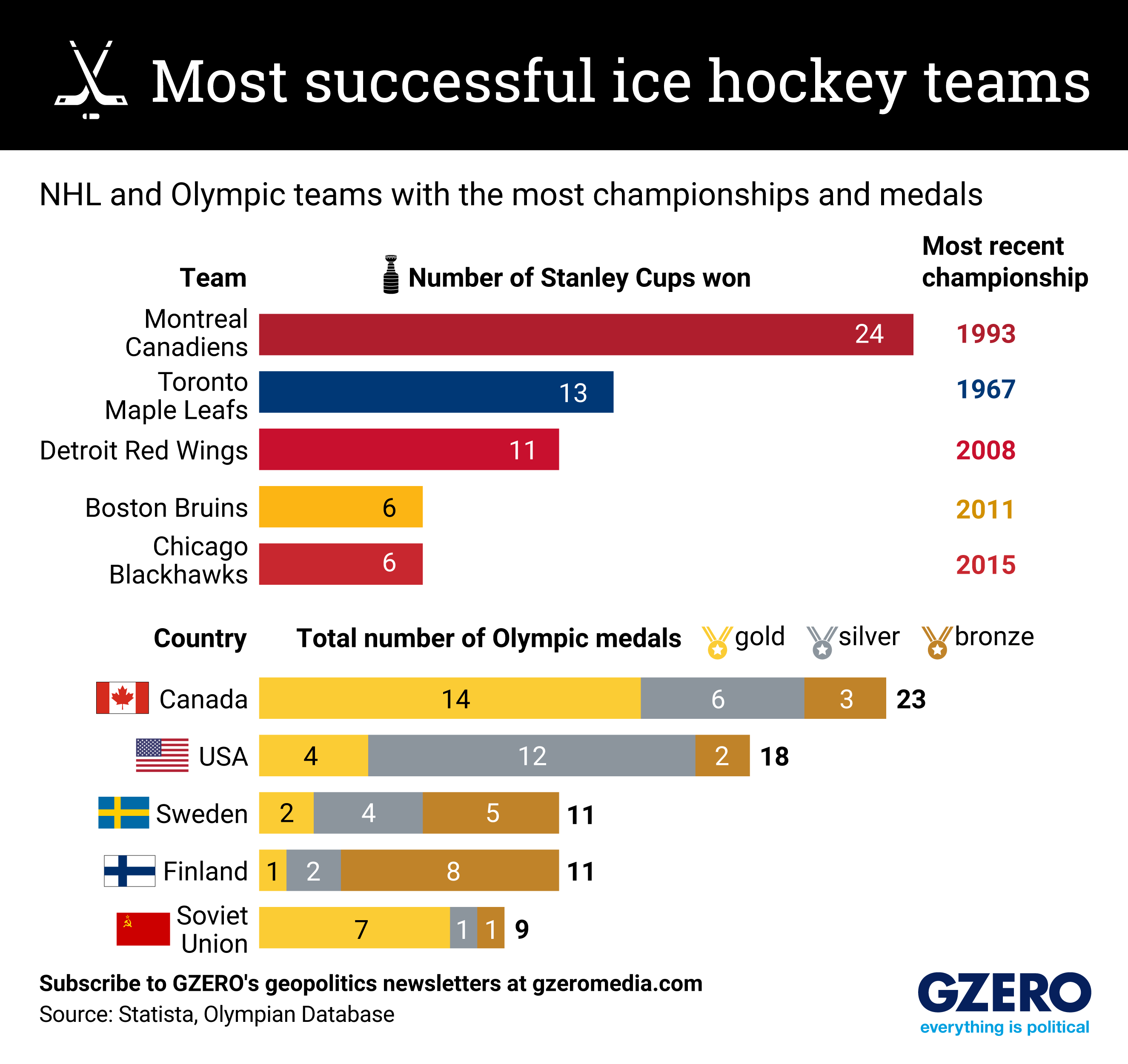Luisa Vieira
Ice hockey is by far the most popular sport in Canada, and the Toronto Maple Leafs and Montreal Canadiens the most beloved NHL teams. Unsurprisingly, these two teams lead the pack in total Stanley Cup wins, while the Detroit Red Wings just south of the border boast third place in those ranks.
What is surprising: A Canadian NHL team has not won the Stanley Cup in over 30 years.
This year, two Canadian teams — the Edmonton Oilers and Vancouver Canucks — remain in the playoffs. So, will 2024 be the year Canada brings home the biggest prize in hockey?
